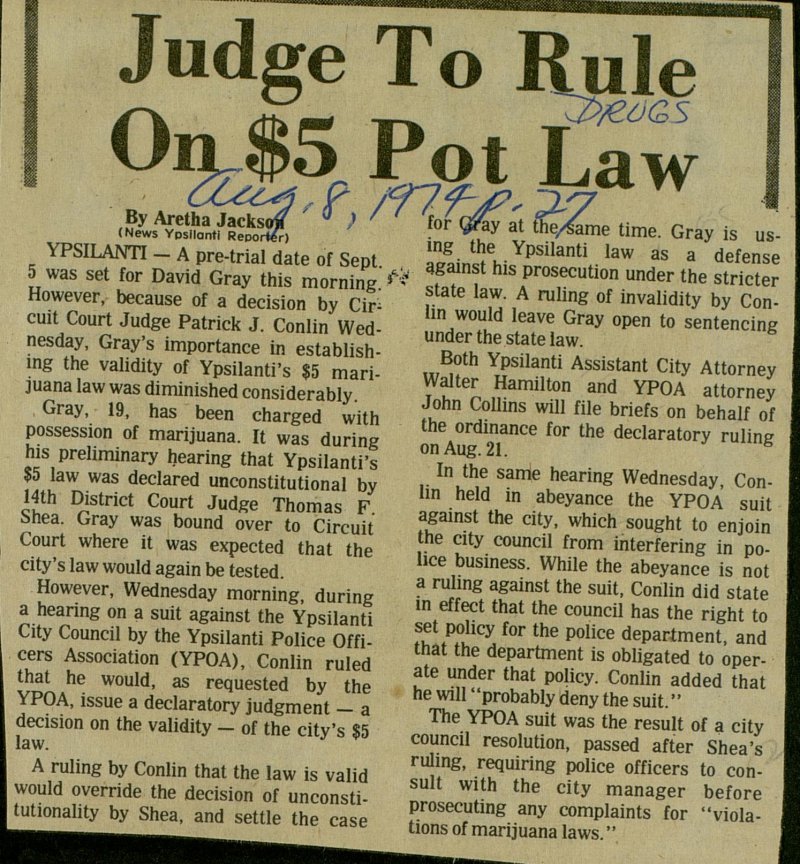Judge To Rule On $5 Pot Law

YPSILANTI - A pre-trial date of Sept 5 was set for David Gray this morning. However, because of a decision by Circuit Court Judge Patrick J. Conlin Wednesday, Gray's importance in establishing the validity of Ypsilanti's $5 marijuana law was diminished considerable. Gray, 19, has been charged with possession of marijuana. It was during his preliminary hearing that Ypsilanti's $5 law was declared unconstitutional by 14th District Court Judge Thomas F Shea. Gray was bound over to Circuit Court where it was expected that the city's law would again be tested. However, Wednesday morning, during a hearing on a suit against the Ypsilanti City Council by the Ypsilanti Police Officers Association (YPOA), Conlin ruled that he would, as requested by the YPOA, issue a declaratory judgment - a decision on the validity - of the city's $5 law. A ruling by Conlin that the law is valid would override the decision of unconstitutionality by Shea, and settle the case for Gray at the same time. Gray is using the Ypsilanti law as a defense against his prosecution under the stricter state law. A ruling of invalidity by Conlin would leave Gray open to sentencing under the state law. Both Ypsilanti Assistant City Attorney Walter Hamilton and YPOA attorney John Collins will file briefs on behalf of the ordinance for the declaratory ruling on Aug. 21. In the same hearing Wednesday Conlin held in abeyance the YPOA suit , against the city, which sought to enjoin the city council from interfering in police business. While the abeyance is not a ruling against the suit, Conlin did state in effect that the council has the right to set policy for the police department, and that the department is obligated to operate under that policy. Conlin added that he will "probably deny the suit. " The YPOA suit was the result of a city council resolution, passed after Shea's ruling, requiring police officers to consult with the city manager before prosecuting any complaints for violations of marijuana laws. "